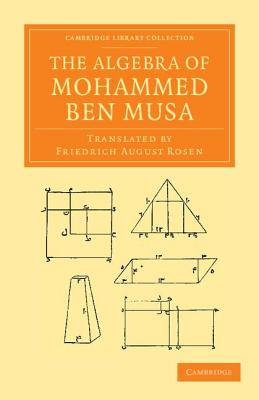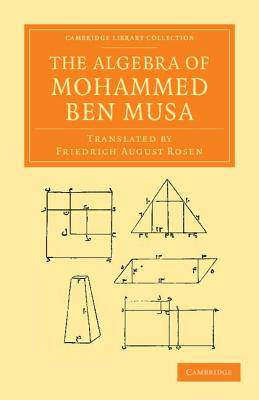
- Afhalen na 1 uur in een winkel met voorraad
- Gratis thuislevering in België vanaf € 30
- Ruim aanbod met 7 miljoen producten
- Afhalen na 1 uur in een winkel met voorraad
- Gratis thuislevering in België vanaf € 30
- Ruim aanbod met 7 miljoen producten
Zoeken
Omschrijving
Mohammed ben Musa (c.780-c.850) was a Persian mathematician and astronomer. The word 'algebra' derives from his Compendious Book on Calculation by Completion and Balancing, which introduced modern algebraic methods. First published in 1831, this translation from Arabic into English was prepared by the German orientalist Friedrich August Rosen (1805-37). The key algebraic methods introduced are reduction, completion and balancing. To reduce an equation is to change an expression to a simpler form; completion is to remove a negative quantity from one side of the equation and add it to the other; and balancing is to cancel like terms on opposite sides of the equation. An account is also given of solving polynomial equations up to the second degree. Rosen's introduction and notes accompany the translation, which remains relevant in the history of mathematics.
Specificaties
Betrokkenen
- Auteur(s):
- Vertaler(s):
- Uitgeverij:
Inhoud
- Aantal bladzijden:
- 350
- Taal:
- Engels
- Reeks:
Eigenschappen
- Productcode (EAN):
- 9781108055079
- Verschijningsdatum:
- 28/03/2013
- Uitvoering:
- Paperback
- Formaat:
- Trade paperback (VS)
- Afmetingen:
- 140 mm x 216 mm
- Gewicht:
- 444 g

Alleen bij Standaard Boekhandel
+ 180 punten op je klantenkaart van Standaard Boekhandel
Beoordelingen
We publiceren alleen reviews die voldoen aan de voorwaarden voor reviews. Bekijk onze voorwaarden voor reviews.











